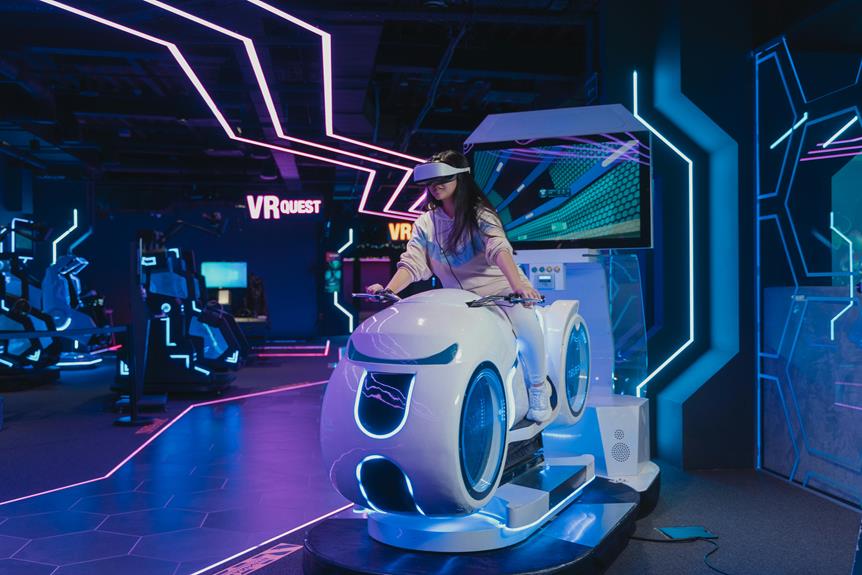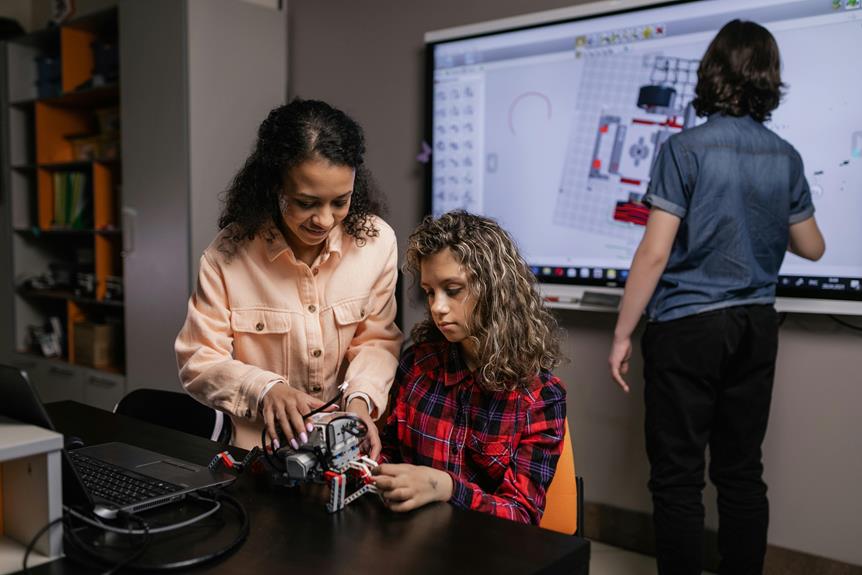Gamification in healthcare utilizes game-like features to boost patient engagement and treatment adherence, leading to improved overall health outcomes. Strategies include rewarding participation, creating interactive challenges, and employing incentive structures to modify behavior. Such approaches enhance treatment outcomes, facilitate behavioral change, and increase patient commitment to therapy regimens. Tools like points-based systems, visual progress tracking, and social support integration are pivotal in driving motivation, behavior change, and community building.
The future trend indicates that AI integration for personalization and data-driven insights for continuous improvement are shaping the evolving landscape of healthcare gamification. Sharpen your understanding of the benefits and impact of gamification by exploring its multifaceted strategies further.
Key Takeaways
- Improves patient engagement and treatment adherence.
- Enhances health outcomes and patient satisfaction.
- Boosts motivation and commitment to therapy regimens.
- Facilitates behavior change and self-care empowerment.
- Supports chronic disease management and healthier habits.
Benefits of Gamification in Healthcare
Gamification in healthcare has shown significant benefits in improving patient engagement and adherence to treatment protocols. By incorporating game-like elements, healthcare providers have observed positive outcomes such as increased patient satisfaction and improved treatment adherence.
Patients are more motivated to participate in their healthcare journey, leading to better health outcomes. This approach enhances patient-provider interactions, ultimately resulting in improved overall healthcare experiences.
Gamification Strategies for Patient Engagement
To effectively engage patients through gamification, healthcare providers can implement strategies like offering rewards for participation and creating interactive health challenges. These approaches not only incentivize patients to actively participate in their healthcare journey but also make the process more enjoyable and motivating.
Rewards for Participation
Patient engagement in healthcare can be greatly enhanced through the strategic implementation of rewards for participation, fostering a more important and motivated approach to wellness management.
- Incentive structures play a vital role in boosting engagement levels.
- Behavior modification is key to improving participation rates.
- Rewards like points, badges, or discounts can encourage patients to actively participate in their healthcare journey.
Interactive Health Challenges
Interactive health challenges serve as innovative gamification strategies aimed at enhancing patient engagement in healthcare.
These challenges leverage the principles of interactive games to motivate patients to take an active role in managing their health.
Impact of Gamification on Treatment Adherence
Integrating gamification elements into healthcare interventions has shown promising results in improving patient adherence to treatments. The impact of gamification on treatment adherence can be seen through:
- Enhanced treatment outcomes and patient experience.
- Facilitated behavioral change and patient motivation.
- Increased engagement and commitment to therapy regimens.
Gamification Tools for Behavior Change
Gamification tools play an essential role in driving behavior change within healthcare settings. Points-based systems offer incentives that motivate users to engage with their health goals.
Additionally, the visual tracking of progress and the integration of social support further enhance the effectiveness of these tools in promoting positive behavioral changes.
Incentives for Motivation
In modern healthcare practices, leveraging incentives to drive motivation and facilitate behavior change has become increasingly recognized as a powerful strategy.
- Behavioral incentives can encourage healthier choices.
- Motivational rewards boost patient engagement.
- Engagement techniques like gamified interventions enhance participation and adherence.
Tracking Progress Visually
Visual progress tracking tools play a pivotal role in enhancing behavior change efforts within healthcare through their ability to provide clear, tangible feedback to individuals.
Progress visualization and data insights offered by visual trackers assist in goal setting, allowing users to monitor their advancements effectively.
These tools not only motivate individuals but also offer valuable insights into their journey towards better health outcomes, promoting sustained engagement and progress.
Social Support Integration
Harnessing the power of social support integration within gamification tools for behavior change enhances user engagement and promotes lasting positive health outcomes. This integration fosters a sense of community, enabling individuals to connect, share experiences, and motivate each other towards healthier habits.
Key elements include:
- Peer encouragement, virtual communities
- Online forums, support groups
- Shared progress tracking and goal achievement.
Gamification in Chronic Disease Management
Effective utilization of game-like elements and mechanics in chronic disease management has shown promising results in improving patient engagement and health outcomes.
Gamification strategies can enhance self-care empowerment by motivating patients to take an active role in managing their conditions.
Additionally, these approaches can support health behavior modification by encouraging individuals to adopt healthier habits and adhere to treatment plans, ultimately leading to better disease management and improved quality of life.
Future Trends in Healthcare Gamification
As the healthcare industry continues to evolve, the integration of cutting-edge technologies and innovative gamification strategies is poised to revolutionize patient engagement and outcomes.
- AI Integration: AI will enhance personalization and decision-making processes.
- Personalized Experiences: Tailoring interventions to individual needs for better results.
- Data-Driven Insights: Leveraging data analytics to continuously improve gamification approaches.









































